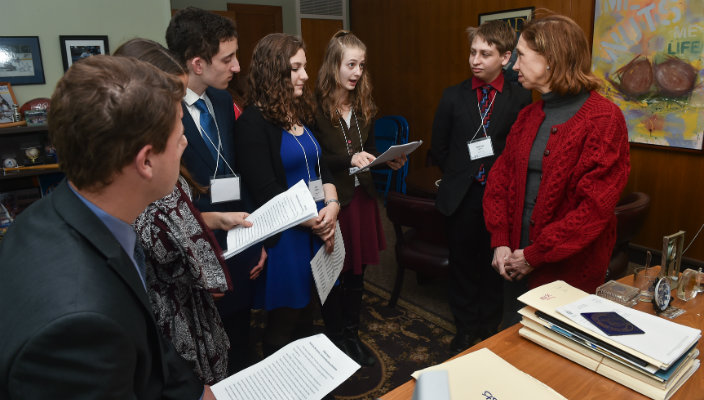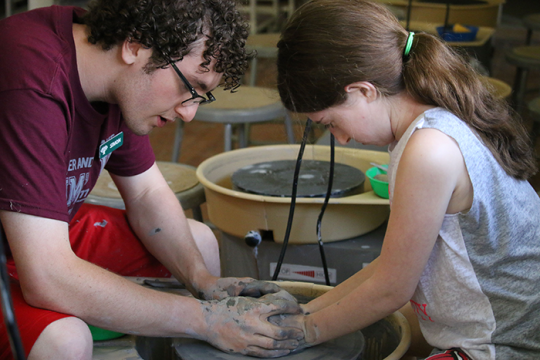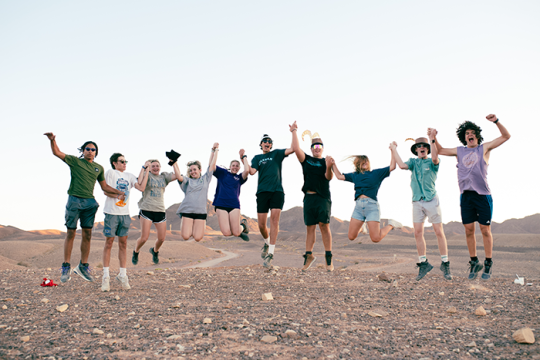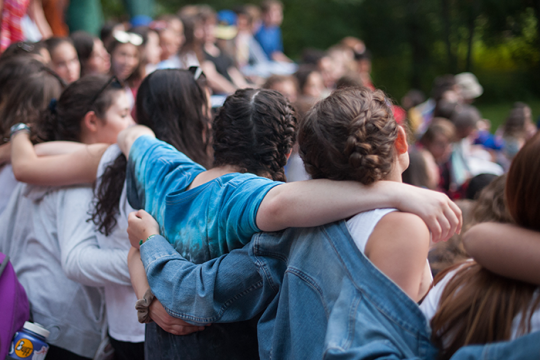
At the end of the book of Bamidbar, which we just completed reading, it seemed that Moses’ career as a leader had come to an end. His successor, Joshua, had already been determined, and it would be he, not Moses, who would lead the people into the Promised Land. Still, in the midst of transition and the last month of his life, Moses assembles the people and delivers a series of addresses. This week’s parasha begins with the phrase Eleh ha-d’varim, meaning “these are the words.” As the children of Israel assemble in front of him, Moses prepares them for a new beginning. He ceases to be the liberator, the miracle worker who parted the sea, and the redeemer who was called upon to replenish a depleted well. The people gain responsibility.
Parashat D’varim brings me to an important inflection point in our country when we are assembled together. We watch the conventions and read the news, educating ourselves in priorities like equality, healthcare, and education. We debate amongst our colleagues at lunchtime and hear the words of our peers echoing on social media. We make our way through political cartoons and controversies. While at the peak of election season, we are consumed with making an important choice. Yet, as youth professionals, spiritual leaders, change makers, and parents, we have another obligation.
Moses used his last set of words to help transition his people, even while public speaking was not his strongest feat. It is only then that he became Moshe Rabbenu – not simply a leader, but most literally, “Moses our rabbi, our teacher.” We, too, must remember that it is our role to ensure our youth are given support to address the anxieties of our day, to sort through the noise, and to help build this next phase of our world. Often, the first thought that comes to mind is, “But, they cannot vote yet.” We reason that our issues – “adult issues” – are over their heads. But the truth is, our kids are arriving home from summer programs and we can learn a thing or two from them.
While we take a stance for gay rights, our youth march in the pride parade. When we debate the right to bear arms, thousands of our teens come together in viral campaigns to heal our nation of its gun violence epidemic. As we feel the pain of people who flee to our country seeking safety, these 10-12th graders empower newly arrived refugee children by teaching them English, soccer, and gardening at summer camp.
Our youth are already taking a stand for national issues in URJ programs, and we have an immense power to help mold their spiritual and moral identities. As Moses was inclined to speak openly to the children of Israel, this election season we can do the same by speaking to our youth about a future that is also theirs to live. We can help them have a voice in defining it. In preparation of entering the voting booths in November, I urge you to make the most out of the opportunities we have during this time and our obligation to educate.
Here are 3 steps you can take for the young people in your community:
- Help them get informed: Voice Your Choice toolkit for teens from Kutz Camp and NFTY.
- Teach them about voter rights: Nitzavim initiative from the Religious Action Center.
- Give them tools: 6 Ways Teens Can Get Involved in the Presidential Elections Right Now.
I wish us all a productive road ahead in the year to come.
Have something to say about this post? Join the conversation in The Tent, the social network for congregational leaders of the Reform Movement. You can also tweet us or tell us how you feel on Facebook.
Related Posts

Embracing Jewish Identity, Learning to Lead: The Lifelong Benefits of Working at Summer Camp

Empowering Tomorrow: The Enduring Impact of Youth & Teens in Reform Judaism's 150-Year Journey
